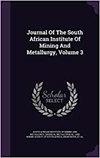Void filling and water sealing in a decline in the Kalahari Manganese Field
IF 0.9
4区 材料科学
Q3 Materials Science
Journal of The South African Institute of Mining and Metallurgy
Pub Date : 2022-03-31
DOI:10.17159/2411-9717/480/2022
引用次数: 0
Abstract
Investigations were conducted to determine the condition and stability of the existing decline at a mine in the Kalahari Manganese Field, Northern Cape Province, South Africa. During the inspection of the decline, voids were identified behind the concrete lining on the hangingwall and sidewalls over a total linear distance of 230 m. The voids did not provide confinement and, as a result, self-mining was occurring behind the lining. Water was flowing into the decline, over a total linear distance of 100 m, at areas where the decline intersected incompetent rock units, causing softening of the concrete lining and deterioration of the surrounding rock mass. Further damage to the concrete lining was caused by expansion and contraction of the wet red clay unit. Remedial work comprised void filling and water sealing to prevent further deterioration of the decline and ensure that it remained operable for the remainder of the life of mine. Void filling was accomplished by drilling rows of holes along the decline to access the voids and filling the voids with foam. This was followed by the sealing with polymer fluids. Telescopic pipes were also installed to allow water to drain off. A visual inspection was conducted and check-holes were drilled to assess the quality of the remedial work. The void filling material had penetrated cracks in the concrete lining, and areas where voids were intersected by check-holes were re-filled. Additional holes were drilled to re-seal areas that were still wet. The remedial work was completed successfully, as all voids were filled and stability achieved without compromising the concrete lining. The ingress of groundwater was also reduced to some residual dampness.卡拉哈里锰矿递减过程中的充填与止水
进行了调查,以确定南非北开普省卡拉哈里锰矿现有衰退的状况和稳定性。在检查斜坡的过程中,发现上盘和侧壁上的混凝土衬砌后面有空隙,总直线距离为230米。空隙没有提供限制,因此,衬砌后面出现了自采现象。在滑坡与不合格岩石单元相交的区域,水在100米的总直线距离内流入滑坡,导致混凝土衬砌软化和围岩恶化。湿红粘土单元的膨胀和收缩对混凝土衬砌造成了进一步的损坏。补救工作包括空隙填充和水封,以防止衰退进一步恶化,并确保其在矿山剩余寿命内保持可操作性。空隙填充是通过沿着斜坡钻成排的孔来进入空隙并用泡沫填充空隙来完成的。随后用聚合物流体进行密封。还安装了伸缩管,以便排水。进行了目视检查,并钻了检查孔,以评估补救工作的质量。空隙填充材料穿透了混凝土衬砌中的裂缝,空隙与检查孔相交的区域被重新填充。钻了额外的孔来重新密封仍然潮湿的区域。补救工作成功完成,因为所有空隙都被填充,并且在不影响混凝土衬砌的情况下实现了稳定性。地下水的进入也减少了一些残留的湿气。
本文章由计算机程序翻译,如有差异,请以英文原文为准。
求助全文
约1分钟内获得全文
求助全文
来源期刊
CiteScore
1.50
自引率
11.10%
发文量
61
审稿时长
4-8 weeks
期刊介绍:
The Journal serves as a medium for the publication of high quality scientific papers. This requires that the papers that are submitted for publication are properly and fairly refereed and edited. This process will maintain the high quality of the presentation of the paper and ensure that the technical content is in line with the accepted norms of scientific integrity.

 求助内容:
求助内容: 应助结果提醒方式:
应助结果提醒方式:


